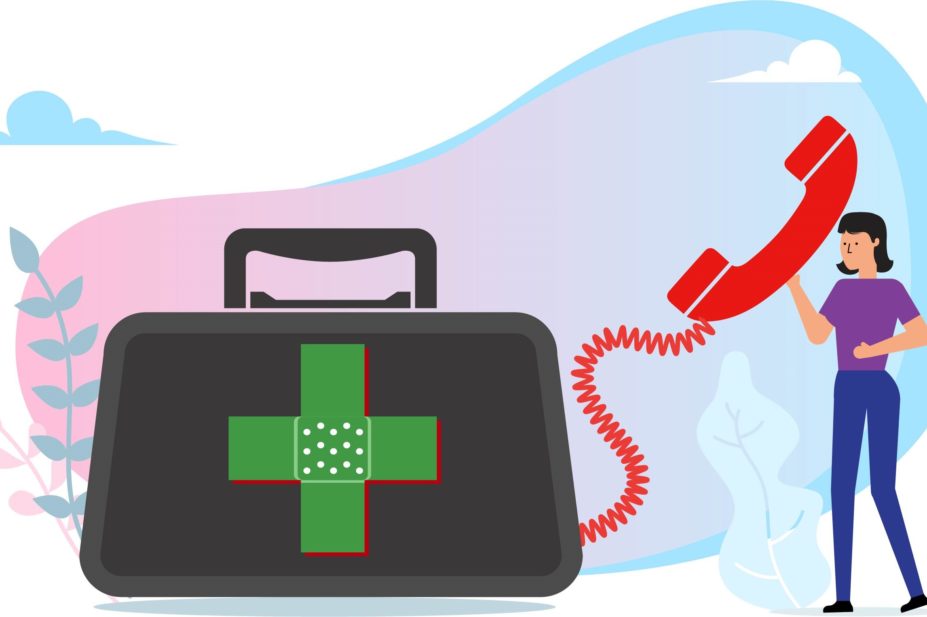
Mclean/Shutterstock.com
At one of my GP practices in Islington, London — where the list size is around 6,000 patients and the on-call list is somewhat manageable — I asked my clinical supervisor: “Can I help the on-call GP with triage?”
We discussed the idea with the rest of the team and, owing to my background at NHS 111 and my training at the practice, I was able to solely take charge of the triage list.
The arrangement worked so well that, in December 2018, I introduced the concept of a pharmacist-led on-call triage service to another one of the practices I work at — St John’s Way Medical Centre — which was looking to improve its appointment system.
I suggested that I could support the on-call triage list. Given the large list size of over 13,000 patients, it seemed most safe and efficient to have two clinicians working on the list: a pharmacist and one GP. This freed up one GP to provide a clinic.
With the help of the practice manager, one GP partner, a salaried GP and one senior practice nurse, I devised a pilot that aimed to improve patient access to GP appointments and reduce avoidable same-day, face-to-face urgent appointments by signposting patients to other appropriate services, such as community pharmacy.
And we were successful: after six months, as a result of the system, the practice saw a 50% fall in the number of same-day emergency appointments and a 16% decrease in routine appointment waiting times for any doctor.
We also found that nearly 80% of patients had a positive response to the service, and 12 out of 15 GPs rated the skills of the pharmacist as ‘very good’.
Our practice is innovative, so the idea of having a pharmacist triaging alongside another GP did not seem to worry many. But change brings challenges.
Some GPs raised concerns about the clinical competence of pharmacists, overall clinical responsibilities and medicolegal liability. Who would have the overarching responsibilities over my decisions? Would the GP be liable? Would we be placing patients in harm’s way?
These are all valid concerns. While my background in NHS 111 and previous success of triaging as the sole clinician in another practice helped build a stronger case for my competence, I had to ensure that the patients I interacted with were within my clinical competence.
To ease the team’s worries, we agreed to have a debrief session to discuss my triaging process, which included note taking and outcome decision making with the duty doctor.
It was also agreed that the GP would deal with cases that were not considered to be ‘minor ailments in their presentation’ and maintain an open-door policy for any queries that I thought needed to be addressed immediately.
To work on the triaging system, I had to recognise my own learning needs and address them, so I engaged with lots of proactive learning, reading and training where possible.
My pharmacist lead — who recognises the potential of this project here, and at other practices — has even agreed to have the GP federation fund triage training for the entire team.
Our success with the triaging system has meant my colleagues in other practices have started introducing pharmacists to support their morning triage.
We are also set to go live in December 2019 with the inclusion of pharmacists in the GP federation’s extended hours service, following the model used at St John’s Way Medical Centre. This will support our fellow GP and nurse colleagues to manage the winter burden.
This year has been met with many challenges, through introducing change and recognising my own limitations, as well as my strengths.
But given the changing landscape of general practice, we must look at ways we, as pharmacists, can use our existing skillsets, and our potential to upskill, to support both our colleagues and patients.
Amira Shaikh, deputy lead clinical pharmacist, Islington GP Group
You may also be interested in
The importance of diverse clinical imagery within health education

Government should consider ways to prevent ‘inappropriate overseas prescribing’ of hormone drugs, review recommends
